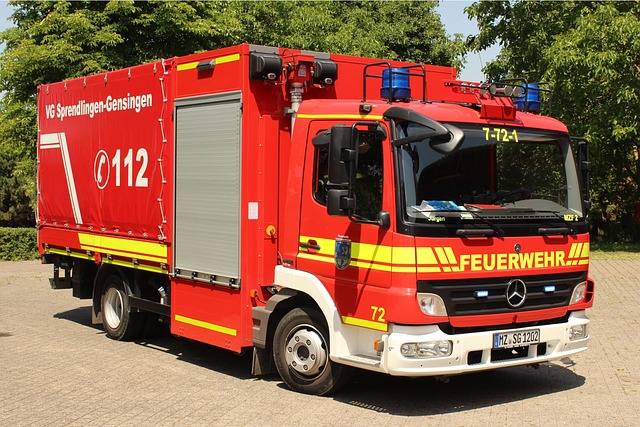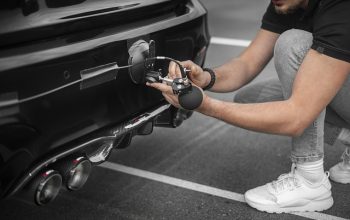When transferring your vehicle's registration to a new state, it's essential to complete the DMV vehicle verification process, which includes a thorough VIN number verification. This process ensures that your car's VIN matches its title and history as recorded in a national database. The DMV VIN inspection, conducted at authorized locations, confirms the VIN's authenticity and alignment with the vehicle presented. To initiate this, you must submit an application, provide proof of ownership, and possibly pay a fee for the VIN verification service, which can vary by state. It's advisable to schedule an appointment to minimize wait times and ensure that all paperwork is in order. Upon successful verification, you'll receive clearance for registration. This process is critical for safety and compliance with state regulations. The DMV VIN inspection locations are strategically placed across each state and can be easily found through your state's official websites or driver's licensing offices. Some states offer additional services like mobile units for on-site inspections, providing convenience to those in remote areas. Be prepared for potential costs associated with the DMV VIN inspection, which are determined by individual state regulations. Remember to adhere strictly to the DMV VIN check requirements to avoid any complications during the registration process. A proper DMV VIN inspection is key to completing this step efficiently and ensuring your vehicle meets all necessary standards for registration in your new state.
When transitioning to a new state with your vehicle, understanding the DMV vehicle verification process is key. This article demystifies the VIN number verification procedure required for out-of-state car transfers. Whether you’re moving across the country or simply relocating within your state, knowing the ins and outs of the DMV VIN inspection, including approved locations and associated costs, ensures a seamless registration process. We’ll guide you through the necessary steps to confirm your vehicle’s identity aligns with DMV standards, helping you avoid any snags along the way.
- Navigating DMV Vehicle Verification: Understanding the VIN Inspection Process for Out-of-State Transfers
- Identifying Approved DMV VIN Inspection Locations Across Different States
- Cost Considerations: Breaking Down VIN Number Verification Fees and Requirements for DMV Registration Inspection
Navigating DMV Vehicle Verification: Understanding the VIN Inspection Process for Out-of-State Transfers
When transitioning to a new state with your vehicle, it’s imperative to acquaint yourself with the DMV vehicle verification process, particularly the VIN inspection. The Vehicle Identification Number (VIN) is a unique identifier for your car, and its verification is crucial for registering your out-of-state vehicle in your new residence. The VIN number verification process ensures that your vehicle’s details align with the state’s records, thereby preventing any future registration issues. The DMV VIN inspection locations are specifically designated to perform this task efficiently. These sites are staffed with trained professionals who can authenticate your car’s VIN against the national database, confirming its history and ensuring it matches the vehicle presented for inspection.
To navigate this process without complications, familiarize yourself with the DMV VIN check requirements. These typically involve submitting a completed application, providing proof of ownership, and possibly paying a VIN verification cost, which varies by state. The exact requirements can be found on your state’s DMV website or by contacting them directly. It’s advisable to schedule an appointment at a DMV VIN inspection location to avoid long wait times. Upon arrival, the inspector will examine your vehicle’s VIN, document its condition, and cross-reference it with the national database. If the VIN number verification is successful and all other documentation is in order, you’ll receive clearance to proceed with registration in your new state. This diligent process safeguards both the driver and the state by ensuring that every vehicle on the road has a verifiable history and meets safety standards.
Identifying Approved DMV VIN Inspection Locations Across Different States
When transitioning to a new state with your vehicle, one of the critical steps in the DMV vehicle verification process is identifying an approved VIN inspection location. Each state has its own network of facilities certified to perform the VIN number verification. This ensures that your vehicle’s Vehicle Identification Number (VIN) is accurately recorded and matches official databases, which is essential for registration purposes. To streamline this process, many states provide a list of DMV VIN inspection locations on their official websites or through their driver’s licensing offices. These locations are staffed by certified inspectors who are trained to conduct the VIN verification process in accordance with state-specific guidelines and standards. When searching for an approved DMV VIN inspection site, it’s important to look for facilities that are recognized by your new state’s DMV. This recognition is often denoted by a state-issued certification or endorsement, which verifies the legitimacy of the VIN check requirements being followed at the location. Additionally, some states may have mobile units or appointments available that can travel to you for convenience, especially if you’re in a region with limited access to fixed inspection facilities. Regardless of the method, ensuring your vehicle undergoes a DMV VIN inspection at an approved location is crucial to avoid complications and to ensure a smooth transition during registration. Always verify the current status and requirements of the DMV VIN inspection locations to guarantee that you comply with all state regulations and complete the DMV registration inspection successfully.
Cost Considerations: Breaking Down VIN Number Verification Fees and Requirements for DMV Registration Inspection
When relocating with an out-of-state vehicle, it’s crucial to familiarize yourself with the DMV vehicle verification process, particularly the VIN number verification. This process is integral for confirming your car’s authenticity and compliance with the Department of Motor Vehicles (DMV) standards in your new state. The VIN inspection is a critical step in the registration process, ensuring that your vehicle’s Vehicle Identification Number matches its title and history.
Cost considerations are an essential aspect of this verification. Typically, DMV VIN inspection fees vary by state, with some states offering free inspections and others charging a nominal fee. The cost may also differ depending on the type of vehicle and the services provided during the inspection. For instance, a basic safety check might be less expensive than a comprehensive mechanical examination. To navigate these costs effectively, it’s advisable to research your specific DMV VIN inspection requirements beforehand. This includes understanding what is included in the VIN verification process at each of the DMV VIN inspection locations available to you. Ensure you visit an authorized DMV location to avoid any complications; these centers are equipped to perform the necessary checks and provide a report that confirms your vehicle’s eligibility for registration in your new state. Remember to check the DMV VIN check requirements, which might include additional documentation or proof of insurance, to ensure a smooth transition during the DMV registration inspection process.
When transitioning an out-of-state vehicle to your new home state, the DMV vehicle verification process, including a thorough VIN inspection, is crucial for seamless registration. Our article has demystified this process by guiding you through the necessary steps, from identifying approved DMV VIN inspection locations to understanding the associated costs. With this knowledge, you’re well-equipped to ensure your vehicle’s VIN number verification aligns with DMV standards without unnecessary complications. Remember, a proper VIN verification process is key to a hassle-free transition and maintaining compliance with state regulations. Ensure you refer to the specific VIN check requirements for your state’s DMV registration inspection to keep your move on the right track.



